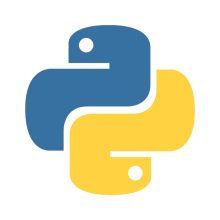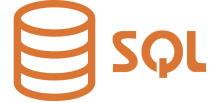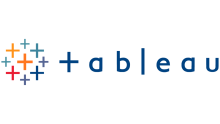Workshop Descriptions
Explore various workshops covering data science, machine learning, and programming. Each workshop provides hands-on experience and valuable learning resources.

Latex
LaTeX: Equation Writing (Level 1)
- Understand the fundamentals of LaTeX, including its purpose and advantages over traditional word processors.
- Gain proficiency in using Overleaf to create and compile LaTeX documents.
- Learn to write mathematical equations and symbols effectively in LaTeX.
- Explore advanced LaTeX features such as formatting, section referencing, figure inclusion, package integration, and source citation.
- Apply LaTeX skills to produce professional-quality documents, such as homework assignments, senior theses, or manuscripts.
- Participants will be able to utilize LaTeX to enhance clarity, consistency, and aesthetics in their academic writing projects.
- Develop the ability to collaborate and share LaTeX documents online using platforms like Overleaf.
- Gain confidence in using LaTeX for various academic and professional purposes.

Python
Python: Programming Basics Part 1 (Level 1)
- Set up the Python programming environment using Anaconda and Jupyter Notebook.
- Understand version control with Git/GitHub.
- Learn about Python functions and how to create them.
- Explore variables and their usage in Python.
- Gain proficiency in essential data structures such as lists and dictionaries.
- Master the implementation of for loops for iterative tasks.
- Understand conditional statements (if…else…) and their role in decision making.
- Engage in a hands-on task to apply learned concepts, potentially involving grocery shopping optimization.
Python: Programming Basics Part 2 (Level 1)
- Set up Python Programming Environment:
- Install and utilize Anaconda
- Use Jupyter Notebook for Python development
- Understand Version Control System using Git/GitHub
- Understand Functions in Python.
- Learn about Variables in Python.
- Explore Data Structures:
- Lists
- Dictionaries
- Implement For Loops in Python.
- Master Conditional Statements (if… else…) in Python.
Python: Manipulating Data - Level 2
- Understand the challenges of working with real-world data and the importance of data cleaning.
- Familiarize with Pandas and its capabilities for data manipulation and visualization.
- Learn techniques for extracting data from various sources.
- Develop skills in transforming data to meet analysis requirements.
- Gain proficiency in cleaning data to remove inconsistencies and errors.
- Explore methods for visualizing data to gain insights.
- Apply Pandas functions and methods to perform common data manipulation tasks.
- Practice handling missing data and outliers effectively.
- Enhance Python programming skills within the context of data analysis.
- Gain confidence in utilizing Jupyter Notebooks for interactive data analysis.

R
R: Programming Basics (Level 1)
- Import and export data efficiently.
- Filter and transform data using dplyr.
- Visualize data effectively with ggplot.
- Apply basic logical operations to manipulate data.
- Import and export data
- Clean, reshape, and transform data
- Convert messy data into tidy data

SQL
SQL: Setting Up Databases using DBeaver - Part 1
- Use DBeaver and SQL statements to:
- Create a database
- Define table elements
- Import tables
- Insert data into your project
SQL: Getting Insights from Databases using DBeaver - Part 2
- Inserting data
- Querying a table
- Joining tables
- Hands-on activities

GIT
GIT: Version Control for Beginners
- Version Control systems
- Git and Github
- Create an organization
- Create a repository
- Create issues
- Forking a repository
- Cloning a repository
- Branching a project
- Contributing to a repository
- Code review and merging

ArcGIS
ArcGIS Online: Exploring GIS Libraries
- What is GIS?
- Classic ArcGIS online overview
- Base and Layers
- Analysis
- Edits
- Save and Send to New ArcGIS Online
- Print and Share
- Endnotes

Stata
STATA Bootcamp (Level 1)
- Understand the Stata console interface
- Learn to log results for reproducibility
- Master techniques for importing and merging data sets
- Acquire skills in cleaning and preprocessing data
- Develop proficiency in interactive and batch mode programming
- Familiarize with common Stata commands and their applications
- Recognize and avoid common mistakes in Stata programming
- Learn methods for estimating correlations and descriptive statistics
- Gain knowledge in graphing data effectively
- Understand regression analysis techniques in Stata
- Explore advanced methods such as panel data analysis
- Learn to implement loops for efficient programming in Stata

Excel
Excel: Exploring Data - Level 1 Workshop
- Understand basic features and functions of Microsoft Excel.
- Learn how to perform data analysis tasks such as sorting, filtering, and applying conditional formatting.
- Familiarize with a selection of useful keyboard shortcuts for efficiency.
- Gain proficiency in using VLOOKUP function for data retrieval and analysis.
Excel: Conditioning Data - Level 2 Workshop
- Understand the functionality and application of Pivot Tables in Excel.
- Gain proficiency in advanced lookup functions including VLOOKUP (approximate match), INDEX, and MATCH.
- Learn to utilize common functions such as Count and Sum for data analysis and manipulation.
- Acquire skills in logical functions including IF, AND, OR, and NOT for decision-making in Excel.
- Build upon basic Excel skills to enhance efficiency and productivity in spreadsheet tasks.
- Apply learned concepts to real-world scenarios to improve data management and analysis capabilities.

Tableau
Tableau: Visualization (Level 1)
- Understand the capabilities of Tableau as a powerful and flexible analytics platform.
- Explore the Tableau Public Gallery to gain insight into data visualization possibilities.
- Identify the target audience as beginners in data visualization with no prior programming knowledge required.
- Acquire access to Tableau software through one-year licenses for academic faculty and students or trial versions.
- Install Tableau Desktop for practical participation in the workshop.
- Gain familiarity with Tableau Desktop Workspace to navigate the platform effectively.
- Learn about Tableau Data Connections to import and manage datasets.
- Practice filtering data to refine insights and focus on relevant information.
- Master sorting and calculations to manipulate data effectively within Tableau.
- Create various types of charts and graphs for data visualization purposes.
- Explore techniques for sharing and exporting insights generated in Tableau.
- Ensure readiness by confirming the availability of Tableau Desktop on personal computers.
Need Help?
Email: [email protected]
